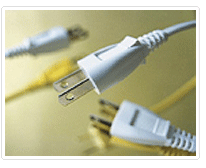 |
 |
| |
Home > Local & Travel Infomation > More Travel Tips
|
|
| |
 Currency Exchange Currency Exchange |
|
|
|
| |
 Credit Cards Credit Cards |
|
|
|
|
 Electricity Electricity |
|
|
 |
|
 |
| |
 |
The standard voltage is 220 volts, but outlets for 110 volts are available at most hotels. Please check the power supply before using your equipment. |
|
|
 |
|
 |
 Banking and Business Hours Banking and Business Hours |
|
|
| Business hours for banks are generally from 09:30 to 16:30 on weekdays only. Banks are closed on Saturdays, Sundays, and public holidays. ATMs are widely available. Department stores are open from 10:30 to 19:30 and shops usually have extended hours from 09:00 to late in the evening. |
 Time Zone Time Zone |
|
|
| Korea is 9 hours ahead of Greenwich Mean Time. |
 Climate and Clothing Climate and Clothing |
|
|
|
The average temperature in Seoul in July typically ranges from 20°C~28°C (68°F~82.4°F) and the weather is generally sunny. A light sweater or jacket is advised for evenings. For more weather details, visit the Korea Meteorological Administration Website.
|
 Emergency Emergency |
|
|
| In case of emergencies at COEX Seoul, contact the registration desk. For emergencies at a hotel, the front desk or hotel manager can arrange for a doctor or an ambulance. If you need a doctor while out, ask a police office or passersby for help. Police boxes can be found on major streets. In addition, SOS Korea (Tel: ) provides a charged 24-hour emergency service for foreigners, connecting patients with Korean hospitals. |
 Food Food |
|
|
Rice and Kimchi (the pickled cabbages) are staples of the Korean diet. Koreans also like to eat a variety of vegetables, seafood and meat dishes. Popular seasonings are soy sauce, Doenjang (soy bean paste) and Gochujang (red pepper paste). The Korean cuisine is rich in nutrients and low in calories.
 Kimchi Kimchi
Kimchi, one of the most popular side dishes of Koreans and well-known even among foreigners, is served at almost every meal. It originated from pickled cabbages Koreans began eating around the 7th century and took the current shape in the 18th century when hot red pepper was introduced as major ingredient. Along with cabbages and powdered red pepper, green onions, pickled shrimps or fish, garlic, ginger, salt, and sugar are added to make Kimchi. The fermented dish has scientifically been proven to be highly nutritious and is recommended by many nutritionists as a health food both at home and abroad.
For more information on Korean cuisine and other useful information, please go to Korean Tourism Organization Website.
|
 Insurance Insurance |
|
|
| All participants of the IFAC2008 World Congress are advised to take out adequate insurance for any accidents. |
 Tax & Tipping Tax & Tipping |
|
|
| Tipping is generally not required for services such as taxi rides, hair salons and restaurants. |
|
|
|
|


